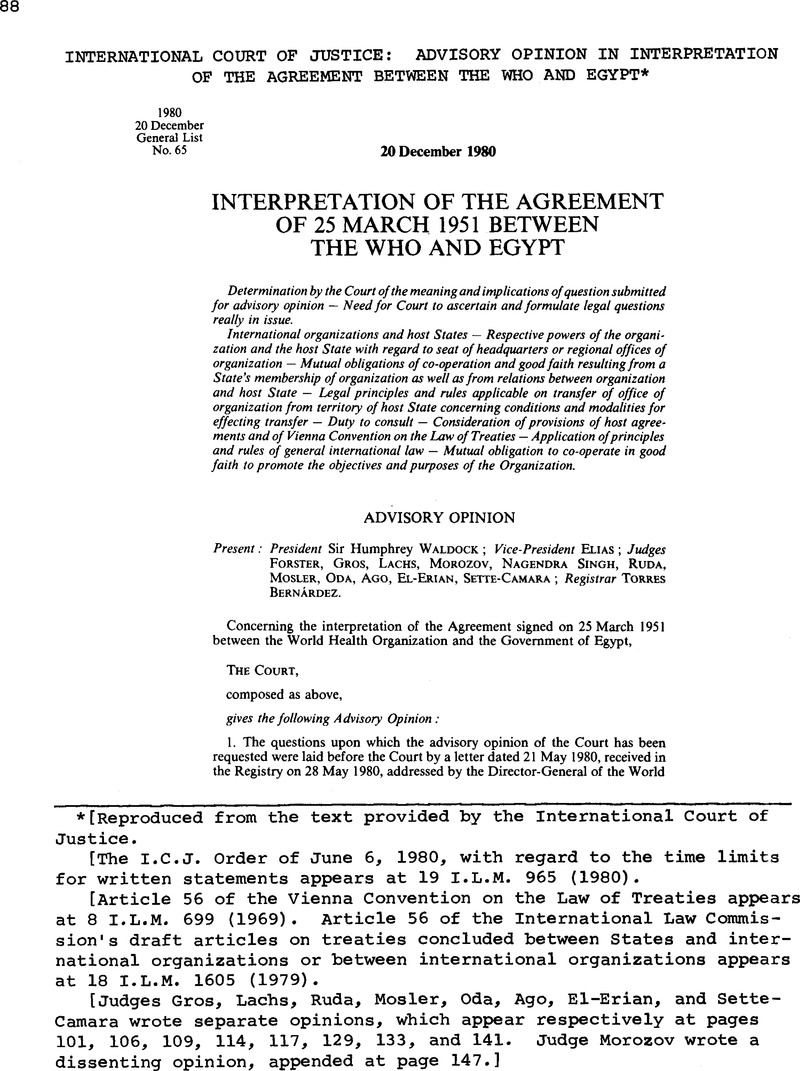No CrossRef data available.
Published online by Cambridge University Press: 04 April 2017

[Reproduced from the text provided by the International Court of Justice.
[The I.C.J. Order of June 6, 1980, with regard to the time limitsfor written statements appears at 19 I.L.M. 965 (1980).
[Article 56 of the Vienna Convention on the Law of Treaties appearsat 8 I.L.M. 699 (1969). Article 56 of the International Law Commission's draft articles on treaties concluded between States and internationalorganizations or between international organizations appearsat 18 I.L.M. 1605 (1979).
[Judges Gros, Lachs, Ruda, Mosler, Oda, Ago, El-Erian, and Sette-Camara wrote separate opinions, which appear respectively at pages101, 106, 109, 114, 117, 129, 133, and 141. Judge Morozov wrote adissenting opinion, appended at page 147.]
1 According to Article 8, paragraph 1(b), of the Regulations for Registration of Treaties and International Agreements, approved by General Assembly resolution 97(I) of 14 December 1946, the Register shall comprise,inter alia, a record of : “The title given to the instrument by the parties.”
1 It should not be forgotten that at the time Egypt had not even become a party to the Convention on the Privileges and Immunities of the Specialized Agencies, which it wasto ratify only later; furthermore, this general convention does not contain clausescomparable with those to be found in an agreement for die establishment of an organization in the territory of a host State, such as Articles III and X of the 1951 Agreement.
1 A question that had become pressing owing to the need to amend the article of the Constitution which provided that the ILO should be established at the seat of theLeague of Nations.
2 See, in connection with all this, the reports of the Conference Delegation on Constitutional Questions on the work of its first session, held in London from 21 Januaryto 15 February 1946(Constittmonul Questions, Part 1, para. 32, p. 24).